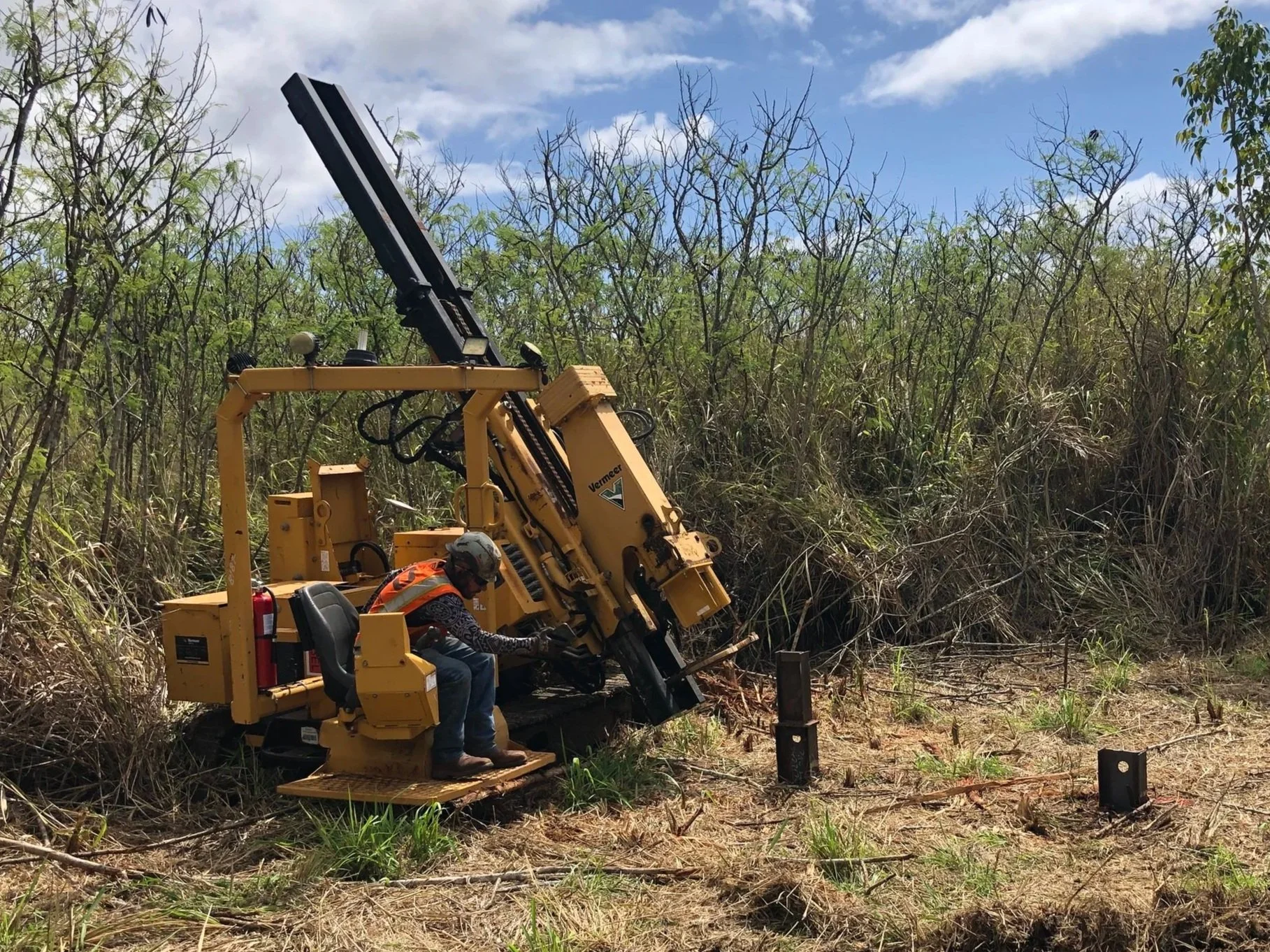
Solar Farm Projects Geotechnical Engineering Services
Year: 2025
Location: Hawai’i
Features:
216-acre site
Driven pile foundations for single-axis tracker solar arrays
Geotechnical report prepared in collaboration
Exploration depths up to 25 feet below surface
Combination of field and laboratory testing
Project Summary
Central Engineering Services provided geotechnical support for the development of solar energy farms in Hawai’i. The sites consisted of agricultural land in rural use or fallow conditions. Work included field explorations, laboratory testing, and on-site pile load testing to assist with foundation design. CES collaborated to prepare comprehensive geotechnical reports. The project areas were evaluated to support driven pile foundations for single-axis tracker solar panels.
Scope of Work
The scope of work included site access coordination, field explorations, laboratory testing, and collaboration in reporting. CES performed geotechnical characterization of the sites, which included field resistivity testing, infiltration testing, and on-site pile load testing. Subsurface conditions were explored through drilling of 23 geotechnical borings and excavation of 15 test pits. Borings were drilled to depths of 5 to 25 feet, and test pits were excavated to depths of 2 to 9.5 feet, with shallow refusal on rock noted in some locations.
Mud rotary and rock coring methods were used to complete the borings. Explorations were continuously monitored by qualified CES staff, who logged subsurface conditions, visually classified soils, and collected representative soil samples. Samples were collected using a standard split spoon sampler and SPT N-values were recorded in accordance with ASTM D1556. Laboratory testing included analysis of swell potential in upper site soils.
Key Activities
Drilling and documentation of 23 geotechnical borings
Excavation and observation of 15 test pits
Field resistivity and infiltration testing
On-site pile load testing of driven foundation types
Laboratory analysis of soil samples, including swell potential characterization
Collaboration with project team on reporting and design recommendations
Results
Subsurface and laboratory data supported foundation design for the solar panel systems. Geotechnical findings were documented in project reports to be used by the design team.



